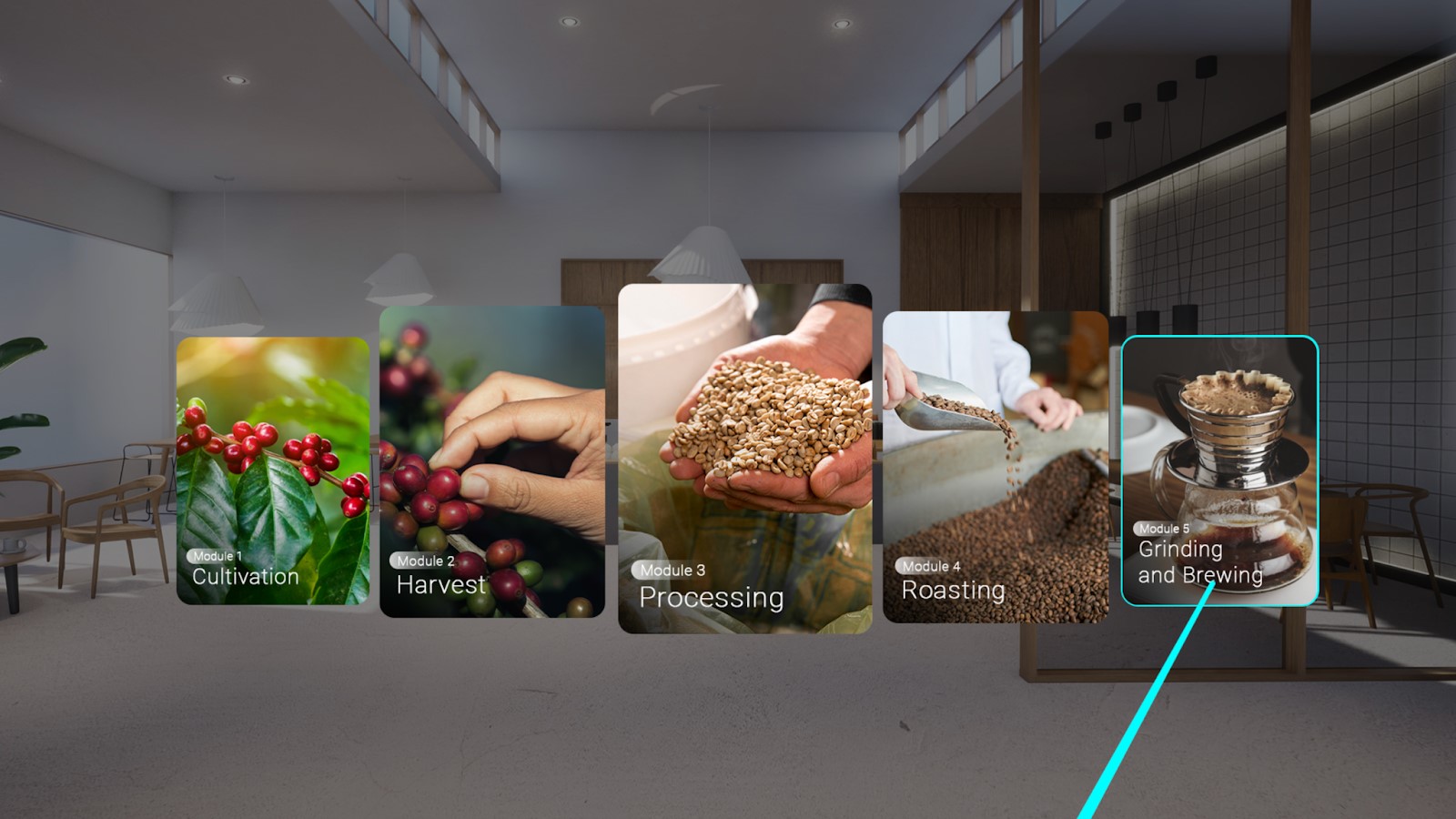A Conceptual Framework for Flavor Analysis Using the Coffee Life Cycle in Virtual Reality Learning
Main Article Content
Abstract
This article presents a conceptual framework for developing Virtual Reality (VR) technology to support learning in coffee flavor analysis. The framework aims to overcome limitations of traditional learning, such as restrictions in time, location, and access to real resources for repeated practice. It is grounded in Cognitive Load Theory (CLT), which informs the design of VR components to align with content and support comprehension in each lesson. Additionally, Experiential Learning Theory (ELT) is integrated to enhance hands-on learning through virtual experiences. The research team plans to design a virtual environment simulating the coffee production process from upstream to downstream. Learners can interact with each stage, including cultivation, harvesting, processing, roasting, grinding, and brewing. They can also explore how different variables influence flavor. The article provides examples of visual designs, learning activities, and simulated flavor outcomes using the Coffee Taster’s Flavor Wheel, which serves as an intuitive tool to communicate possible flavor profiles. The expected outcome is a realistic, interactive, and repeatable learning experience that helps develop flavor analysis skills and systematic understanding of influencing factors. Future directions include developing the VR platform as a blended learning tool for preparation before hands-on practice, and expanding it to support both single-user and multi-user modes. This would enable collaborative learning between learners and industry experts, facilitating knowledge exchange and practical skill development. This framework reflects a new approach to designing learning experiences by integrating VR with sensory science, broadening access to coffee flavor training and aligning with the needs of the coffee industry.


